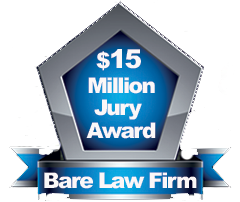Work With Top-Caliber Criminal Defense Attorneys
Criminal Law Case FAQs
A criminal record could cause problems in an employment opportunity, even if you have been only charged once for a crime. Sometimes even the least serious crimes may prevent you from obtaining certain types of employment or could cause you to lose your job. Also, a charge can be used against you if you are charged for a crime again in the future.
A crime is an action which is against the law or ignoring an action which is required by law. Committing a crime can subject you to penalties such as fines, imprisonment or both. The more serious the crime, the more severe the penalty. Crimes are divided into three major groups: summary offenses, misdemeanors and felonies.
Summary offenses include most traffic violations, disorderly conduct and first-offense shoplifting. Summary charges are brought against a person through a citation from a police officer (as in the case of most traffic violations) or by a summons from a district justice to appear and answer to charges.
If the person charged wants a hearing, it is held by the district justice. If that person is found guilty and a fine or prison sentence is imposed, he/she can appeal the decision to the Court of Common Pleas in the county where the charge was filed. The appeal must be made promptly or the opportunity to appeal will be lost.
Another possibility for the handling of summary offenses recently has been put into effect. This procedure is known as Accelerated Rehabilitative Disposition, or "ARD". Prior to a hearing in a summary offense matter, you should discuss the possibility of ARD with your lawyer.
Misdemeanors and felonies are more serious types of crimes. Misdemeanors include driving under the influence of alcohol or drugs, assault and some types of theft. Charges such as robbery, burglary, rape and murder are examples of felonies.
In case of misdemeanor and felony charges, there will be a preliminary hearing before a district justice. This is not a trial. The district justice does not determine guilt or innocence in cases of misdemeanors or felonies, but determines only if the Commonwealth is able to prove a charge that should be tried in court. If so, the trial is then held in the Common Pleas Court of the county where the charges are filed.

